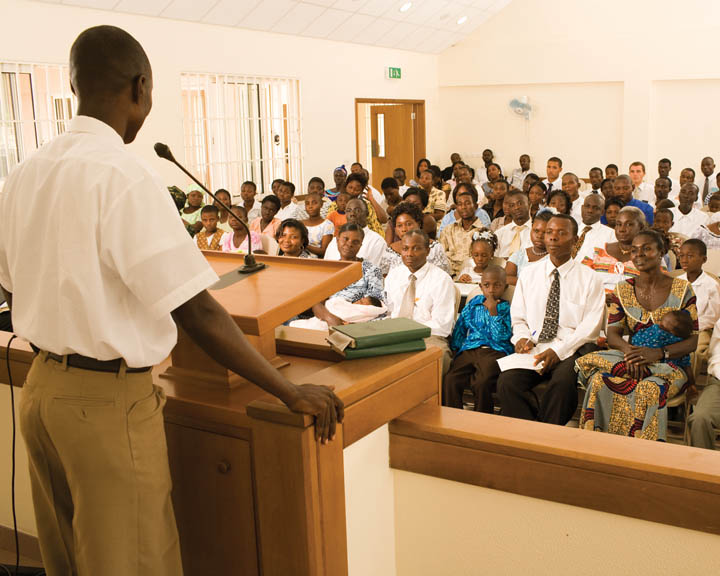Mormon funerals are a time for family and friends to gather to share in their sadness at a temporary separation from someone they love, as well as to celebrate the life and future of the person who has died.
Mormons believe life is a three-stage process, the first beginning before birth, the second during our mortal life, and the final stage our eternal lives. For most people, eternity will be spent in Heaven. Mormons know Heaven to be a wonderful place. While not everyone will live with God (because the Bible outlines the rules for returning home to God), God has prepared a wonderful home for all but the most evil. Mormons don’t believe only Mormons go to Heaven—they don’t, in fact, believe only Christians go to Heaven. You do, however, have to accept Jesus as your Savior and agree to live the principles He taught in order to live in the presence of God. Those who die without the opportunity to do so will be taught the gospel after death and be permitted to make their choice then. Those who die too young to make a choice—children under the age of eight, return directly home to God without the need for baptism. The atonement of Jesus Christ covers them. The atonement also allows everyone to be resurrected, to live forever, and to repent. It makes salvation possible.This means that a funeral is a cause for celebration for nearly everyone and is viewed as a graduation and going away party. Of course, it is held in the chapel, so it is reverent and respectful. However, while you will see plenty of tears, you won’t see hysteria, anger, or uncontrollable grief.
When someone dies, they are buried in white. If they had a temple recommend (permission to enter a Mormon temple as a result of personal worthiness) they are buried in the white clothing they wore in the temple, which includes a white dress for women and a white shirt, pants, and tie for men.
After the viewing, the family prays together and the casket is closed. When the casket is brought to the Mormon chapel (not the Mormon temple), the guests are already seated. The casket is displayed at the front of the chapel, usually to the side by the door located at the front of the chapel. The family enters and is seated in the front rows.
Visitors will notice most people are not dressed in all black clothing. They wear church clothing if they have it—dresses or skirts for women, and sports suits for men—and the nicest thing they have if they don’t have those items. All black clothing is not required because Mormons know that death is only a transition, not the end of existence or even the end of the family. Mormons believe you take your relationships with you. Mormon marriages that occur in the Mormon temples are forever, not just this life and their children are also theirs forever. This means that while Mormons will miss the person terribly, the farewell is not forever and does not signify the end of a happy marriage or family. Who would want to live forever without their families?
The funeral begins with an opening hymn and prayer. A priesthood holder conducts the meeting—often the bishop, who is a lay pastor. There will frequently be a musical number as well, since most congregations have many skilled singers.
Rather than a single sermon, there are usually several speakers at a Mormon funeral. One will remind—or explain if some guests are not Mormon—Mormon beliefs on life after death. Since Mormons believe life after death is nearly always wonderful, this is a reassuring and upbeat talk about family reunions and eternal joy.
Following this, the focus is on the individual who died. At a recent funeral I attended, a long-time family friend shared for the young adult children of the woman who had died the story of how the parents met and the miracles, prayers, and longing that led to the births of the children. They were reminded just how much they had been wanted. Another speaker, a sibling of the deceased, gave the eulogy. Throughout the talks, there was laughter over the humorous moments of a life joyfully lived, smiles at the successes of the life, inspiration in the courage of someone who faced many trials with courage and a smile, and longing for the loss of the daily influence of this person in our lives. However, there was also joy as we pictured her life now, in the final stage, and anticipation in our future reunions with her.
For Mormons, funerals are a sad time because our friend or family member has moved far away, but joy in knowing the challenges of life are complete and the person now knows only happiness and the peace of Heaven. The video below features the current president of the Mormons (before he was the president) talking about the death of a childhood friend and what he shared with the friend’s mother about eternal life many years ago.

